Sustainable Agriculture: What’s the Deal With Soil Health?
Is It Really Eco Friendly?
November 23, 2021 | Guest Post
Last Updated on November 24, 2021
We all know sustainable agriculture is good for the planet, but did you know that it’s also good from a nutrition perspective? In fact, we’re losing nutrients in many of our foods due to poor soil health.
“Donald Davis, a biochemist at the University of Texas, said that of 13 major nutrients in fruits and vegetables tracked by the Agriculture Department from 1950 to 1999, six showed noticeable declines — protein, calcium, phosphorus, iron, riboflavin and vitamin C. The declines ranged from 6 percent for protein, 15 percent for iron, 20 percent for vitamin C, and 38 percent for riboflavin.” (source)
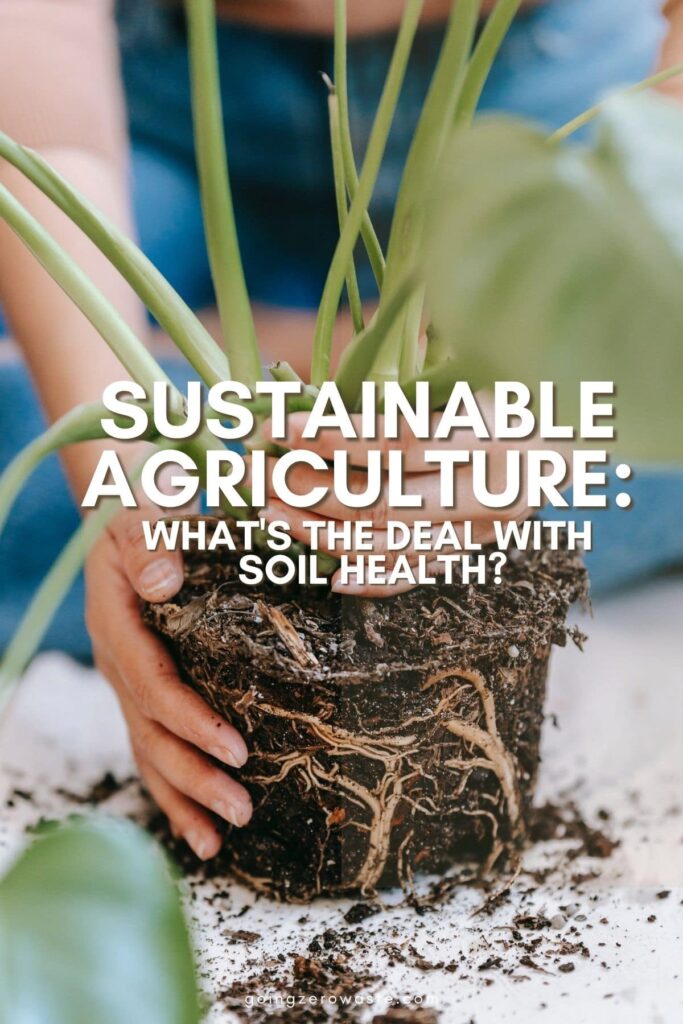
Let’s just say after learning this, I was pretty grateful I started taking a multivitamin to fill my nutrient gaps. Funnily enough, I learned this #FunFact when I sat down with MegaFood for a panel discussion focusing on the environment, soil health, and regenerative agriculture.
I’m going to link to the discussion below because it was wildly enlightening, and inspired this blog post. If you’re unfamiliar MegaFood is one of my major partners – they craft quality supplements that pair vitamins & minerals with real food.
I’m absolutely thrilled to be partnered with them because they’re a Certified B Corp and work with farmers who share their commitment to nutrient-dense food, soil health, and regenerative agriculture. Head over to megafood.com to get 20% off your MegaFood order with the code ‘Kathryn42’.
But, to get to the root of it (get it?) we need to start with the soil…
Table of Contents
what is causing soil depletion?
Soil depletion can be attributed to modern industrial agriculture practices, many of which have completely decimated the health of our soil. You might not realize it, but soil is alive! It’s full of healthy organisms that turn decaying matter and minerals into vital plant nutrients, absorbs carbon, retains moisture to protect against droughts, fights desertification, and more.
Due to unsustainable agriculture practices over the last 50 years our soil health is at an all-time low, and it’s estimated we only have about 60 years of topsoil left. Without a serious focus on regenerative agriculture and soil depletion, we could lose our ability to grow enough nutritious food to feed everyone. (source)
We need a massive shift towards sustainable agriculture and sustainable farming practices. At the bottom of the post you’ll find solutions and ways you can be part of ushering in sustainable farming, but first let’s define it. I mean what does sustainable agriculture even mean?

what is sustainable agriculture?
Sustainable agriculture is intended to protect the environment, expand the Earth’s natural resources base, and improve soil quality and fertility. Ultimately it’s about sustaining farmers, resources and communities.
But, I don’t think sustainable agriculture is enough. We have depleted our resources so much, that instead we should look to not only sustain but regenerate.
what is regenerative agriculture?
Regenerative agriculture is about restoring the soil. It goes beyond just sustaining it and aims to create a positive impact to reverse years of damage. The goal of regenerative agriculture is to revive the organisms and bolster soil quality. In fact, recent data, found that switching to widely available and inexpensive regenerative agriculture practices could sequester 100% of the U.S. annual emissions.
One of the key principles of regenerative agriculture is avoiding the use of chemical pesticides. While many farms saw a bump in production of using chemical fertilizers or pesticides, the persistent use will actually decrease productivity in the long run. And, excessive use destroys nutrients in the soil like sodium, potassium, nitrogen, and creates an imbalance in soil fertility. (source)
I recently toured a farm and after speaking with the owner, after they started implementing some regenerative practices like adding and rotating cover crops – they saw a 100% increase in crop size. 100%!! Same amount of land, same water use – 100% MORE FOOD. This is a win for everyone!
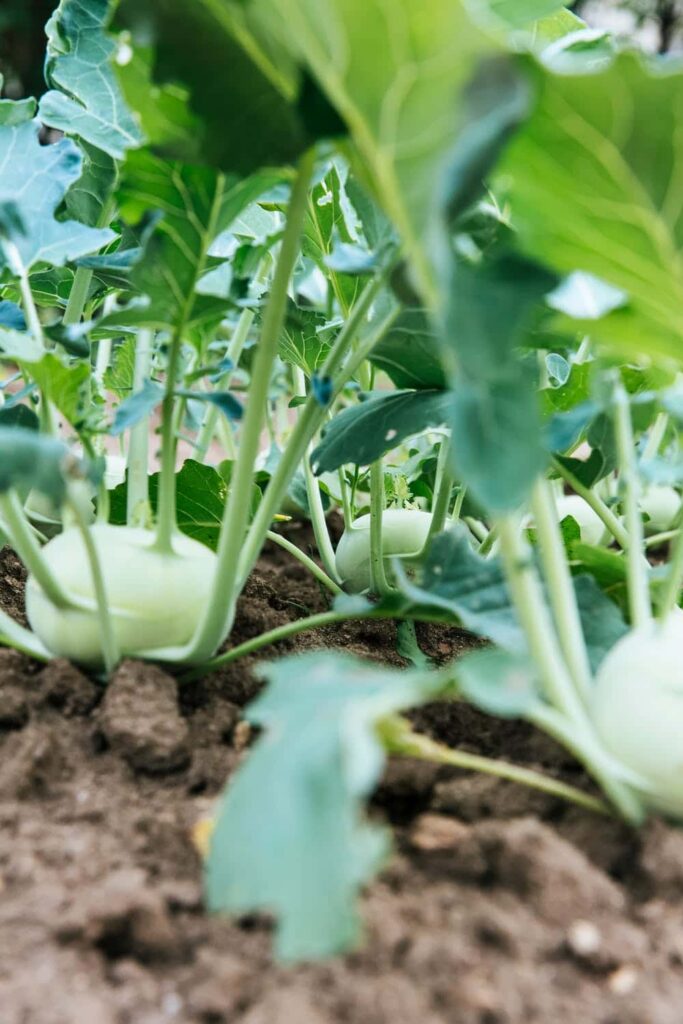
what are some examples of sustainable agriculture?
A few examples of sustainable agriculture are composting, no-till farming, cover cropping, crop rotation, livestock rotation, agroecology, agroforestry, reducing soil disturbance, retaining mulch, and integrated nutrient management. These practices have so many benefits like increased carbon sequestration, increased crop yields, and reducing the reliance of fossil fuels and chemical herbicides and pesticides.
what can I do to promote sustainable and regenerative farming practices?
Well, I’m so glad you asked. Whether you own a farm or not, there are still a lot of ways that you can promote and support sustainable and regenerative agriculture at home. Farming touches almost every aspect of our lives – food, furniture, even fabrics for upholstery in clothing! Yep, regenerative cotton – is really important.
1. join a local CSA:
CSA stands for Community-supported agriculture and is also known as cropsharing. It’s a system that connects you with a small, local farm, and it allows you to help share the risk of farming. Instead of paying per piece, you pay a subscription fee and the farm will deliver a box of what’s in season.
The goal being the producer and consumer coming into the market as equals to exchange with fair prices with fair wages. While this might sound super expensive, the CSAs I’ve been part of have been very reasonable. It’s definitely worth checking out.
2. go to your local farmers market:
If you’re a really picky eater *cough, cough* my husband then going to a farmers market might be more your speed. Some CSAs allow you to pick and choose what you want, but most just deliver a random basket. I loved the challenge and creativity of it, but it wasn’t for Justin.
While you’re at the farmers market talk to the farmers and ask how things are grown and what their practices are. It’s a fantastic way to learn more about where your food comes from.
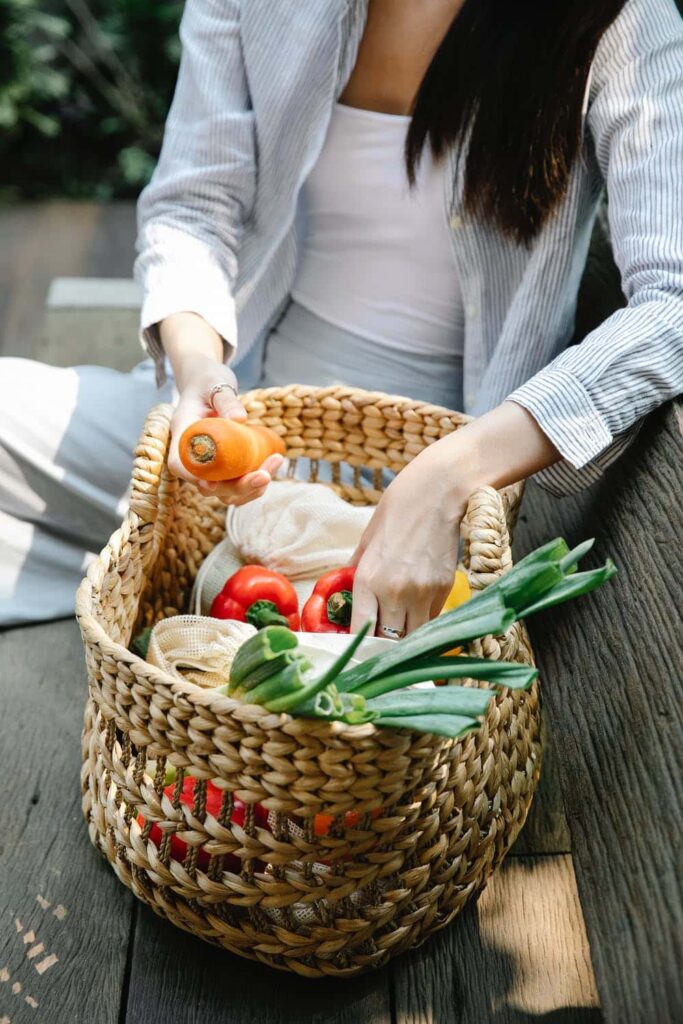
3. support companies that are doing the right thing:
Farming goes beyond just what we put on our plate. Who grows your Christmas tree? Who grew the cotton for the dress you’re wearing? Try and be mindful of sustainable and regenerative farming across all the items you purchase.
One of the reasons I choose MegaFood is their commitment to regenerative farming and they have a very impressive roster of quality certifications like non-GMO project verified, certified glyphosate residue-free, tested for 125+ pesticides and herbicides, as well as many others. When I take my Multi for Women or B Complex, I know that I’m getting a quality product that’s good for me and the planet.
If you’re interested in checking out MegaFood, you can get 20% off with the code ‘Kathryn42’.
4. plant or join a community garden:
Why not start a garden in your backyard? Growing your own food is empowering and delicious! One of my favorite books, Braiding Sweetgrass, which was a huge hit with my eco-friendly book club, speaks in depth about planting a garden. People often ask me what one thing I would recommend to restore the relationship between land and people. My answer is almost always, ‘Plant a garden.’”
If you don’t have the space to start a garden of your own, consider joining a community garden!
5. compost:
If you’re sending your food scraps to the landfill, I hate to break it to you, but it’s a big problem. You’d think it would break down since it’s dumped into a giant hole in the ground, but it doesn’t because landfills aren’t aerated. It’s called anaerobic decomposition, and all of that oxygen deprived organic matter releases methane into the atmosphere which is 30% more powerful than CO2 which means it’s responsible for hastening climate related issues. You can read more about greenhouse gasses in my post How to Offset Your Carbon Footprint and Why You Should.
Thankfully, composting is a great and super easy thing to do at home. Check to see if your city or a local business picks compost up curbside or start your own!
- How to Build Your Own Compost Bin
- How to Compost in an Apartment Even If You Don’t Have a Balcony
- The Ultimate Guide to Backyard Compost
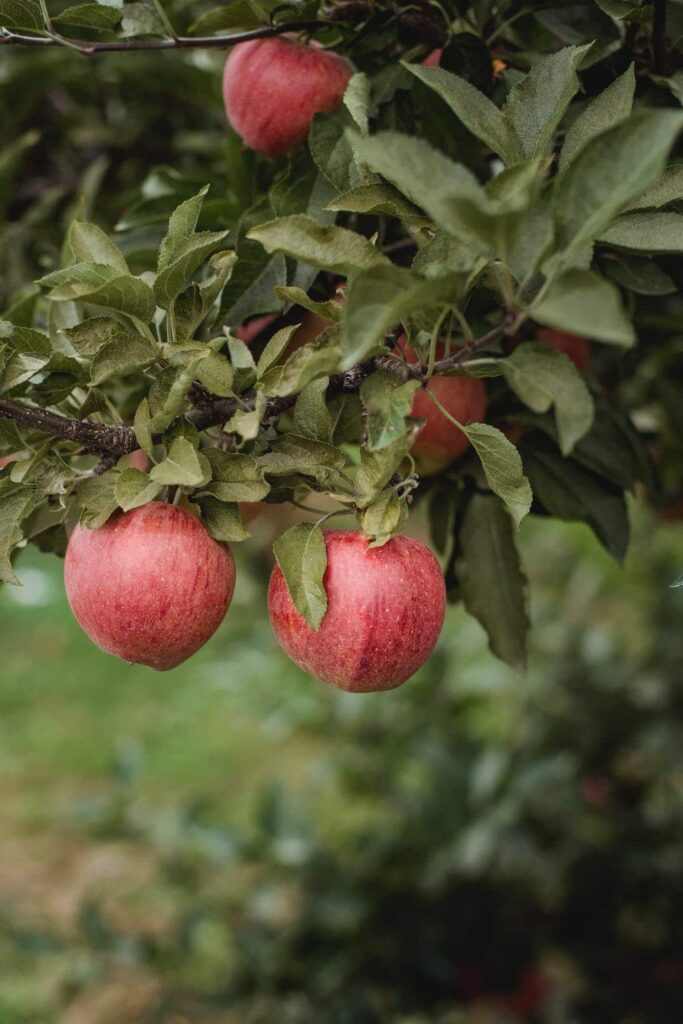
6. talk about it:
One of my favorite climate scientists Katharine Hayhoe says one of the best things you can do about the climate crisis is to simply talk about it. She has a whole ted talk on it that I highly recommend.
But, if you’re concerned about the soil, talk about it! You can talk about problems without being preachy or judgy. Casually mention that it’s something that’s been on your mind. Ask for help with the problem, and bring people together through a little brainstorming session.
7. support sustainable agriculture legislation:
Currently there’s a bill that’s waiting to be brought to congress called the natural solutions act. This climate bill (S. 1251) has THE MOST bipartisan support passing the senate 92 to 8.
It would incentivize farmers and foresters to start sequestering carbon in their soil and lower their carbon footprints. You can find your representative at house.gov. In the right hand corner of the website, there’s a box to enter your zip and find your congressperson.
Call them and ask them to co-sponsor the bill and/or to support it! It will only take a minute of your time and here’s a script you can you.
Here’s a little script for calling:
Hi, I’m (your name, and I’m a constituent. My zip code is (your zip). I would like my congressperson (their name) to support or co-sponsor S. 1251, the growing climate solutions act. Thank you, have a great day!
Easy peasy. You can even have a phone call party. Invite your friends over to call together then make fun drinks or watch a movie to reward yourself for being politically active.
Here’s a little script for calling:
Hi, I’m (your name, and I’m a constituent. My zip code is (your zip). I would like my congressperson (their name) to support or co-sponsor S. 1251, the growing climate solutions act. Thank you, have a great day!
Easy peasy. You can even have a phone call party. Invite your friends over to call together then make fun drinks or watch a movie to reward yourself for being politically active.
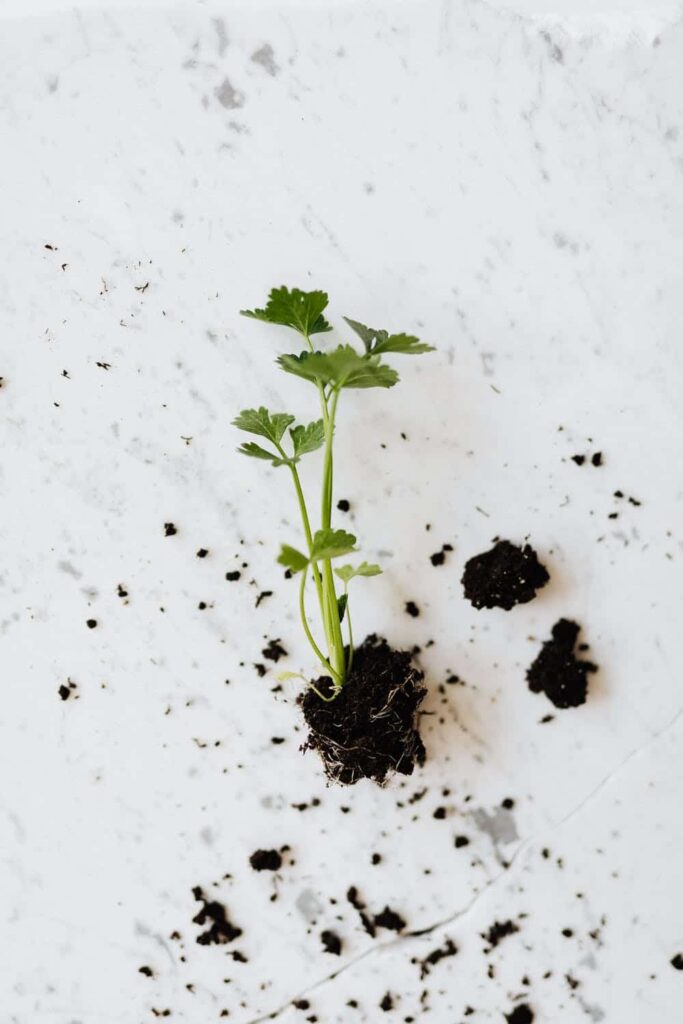
Our unhealthy soil is a pretty big problem, but there’s an easy to implement solution. I hope that after reading this you feel hopeful and empowered. And, of course a major shoutout to the sponsor of this blog post MegaFood. Don’t forget, you can get 20% off your order with the code ‘Kathryn42’.
Which of these actions will you be taking to support regenerative farming?










I don’t think that number–60 more harvests–gets the attention it deserves. Thank you for this post.